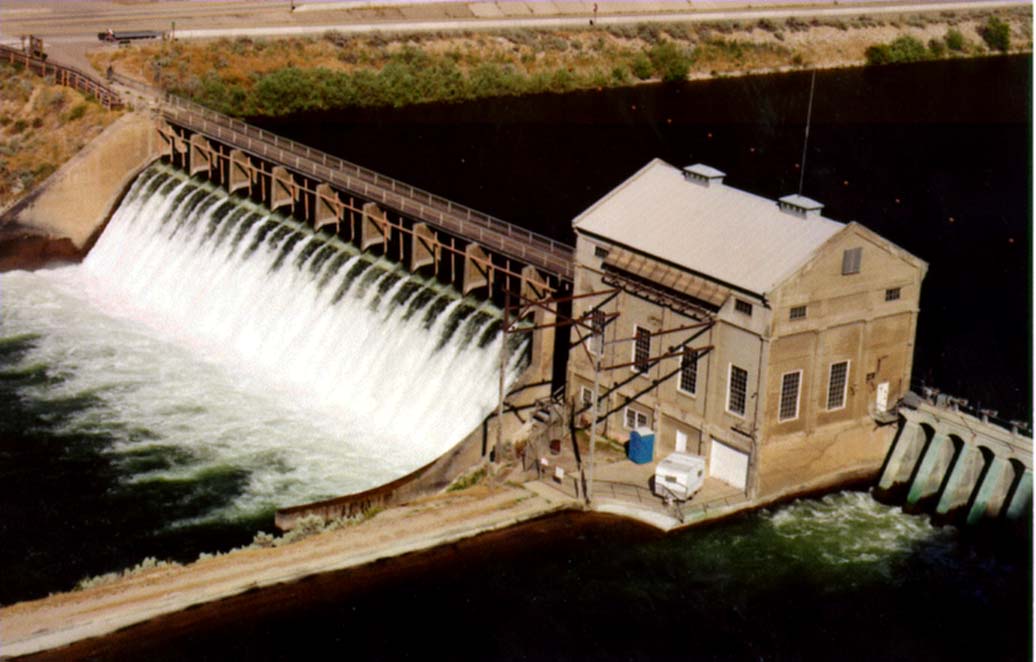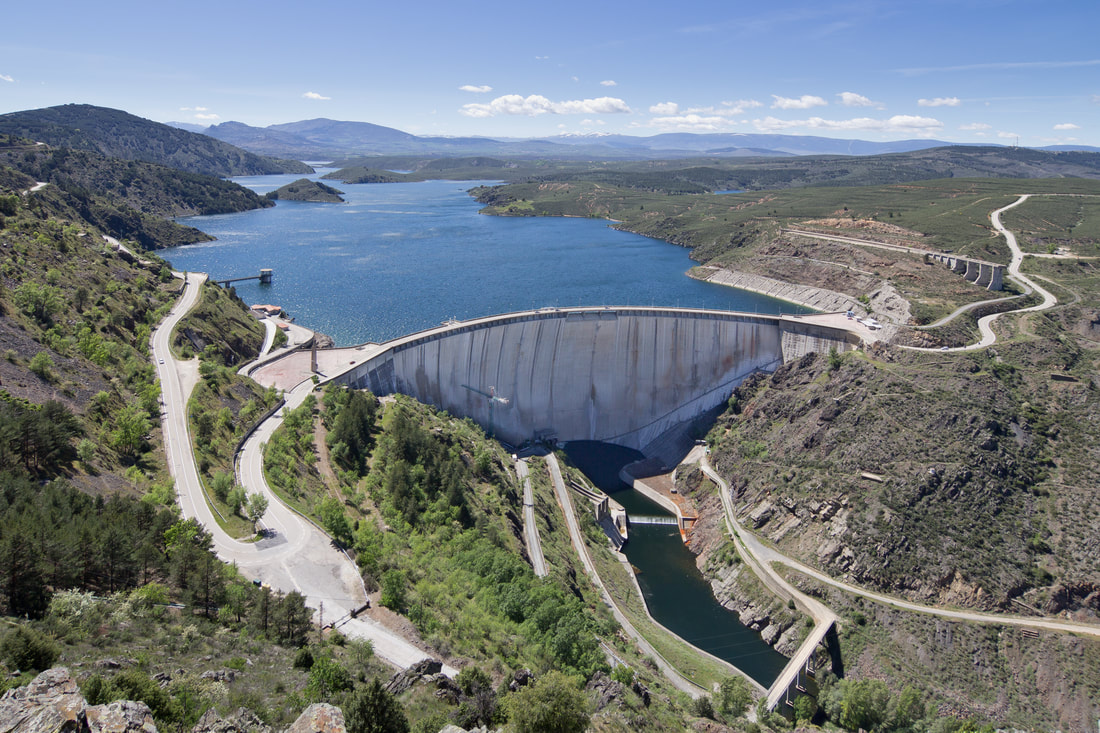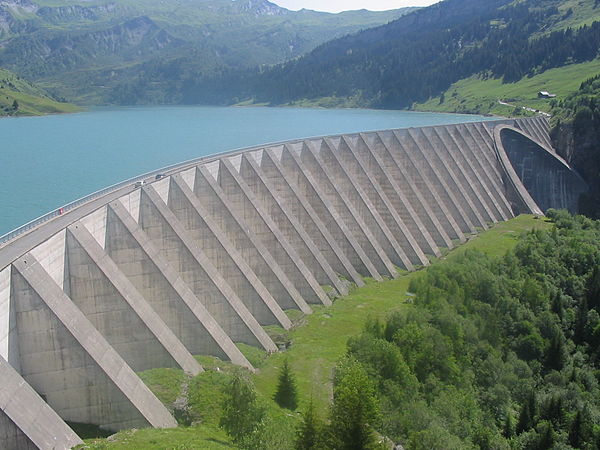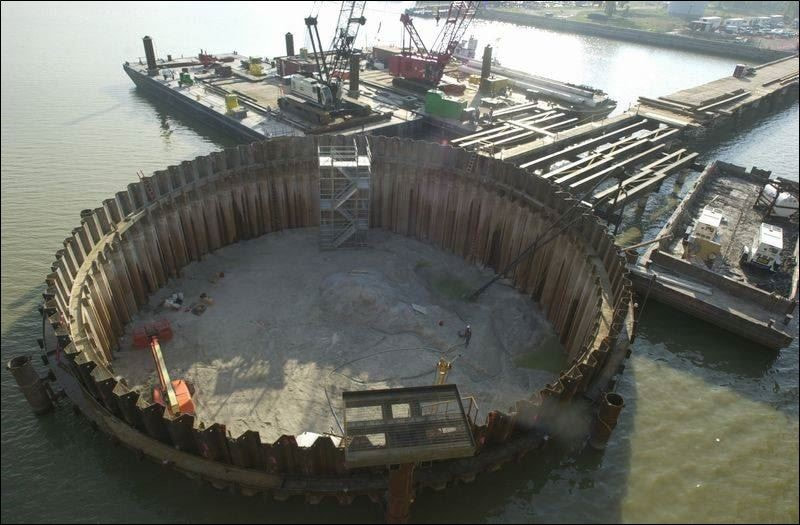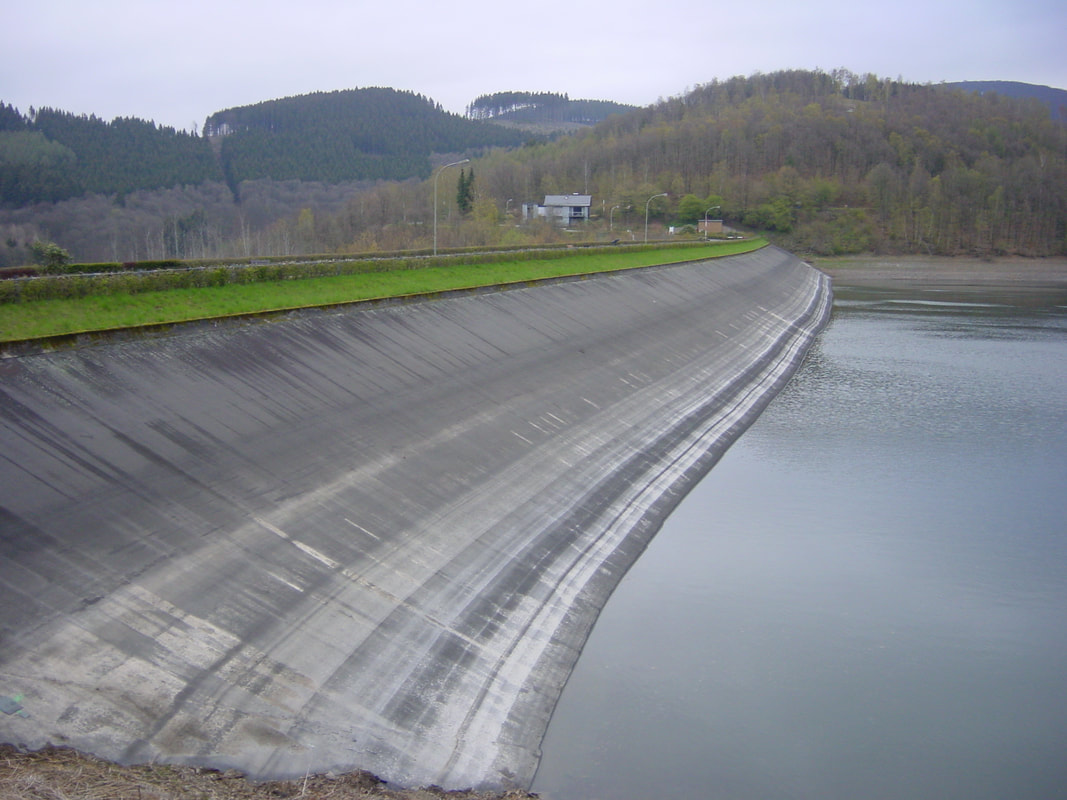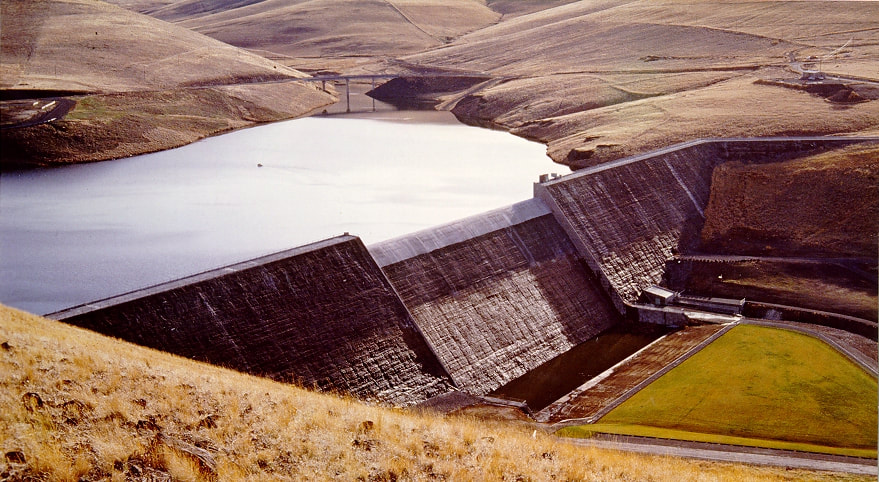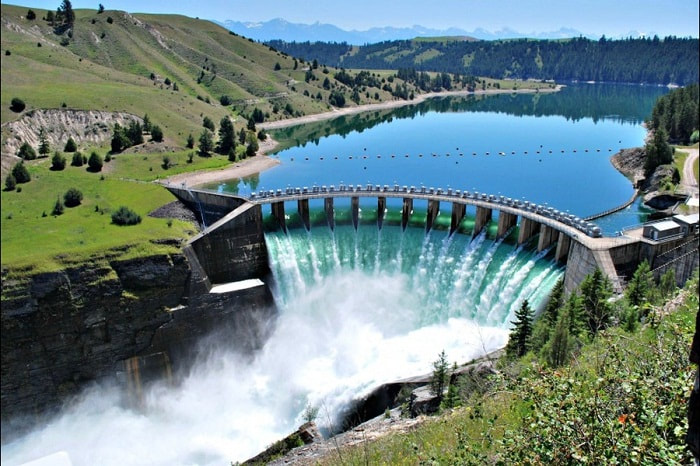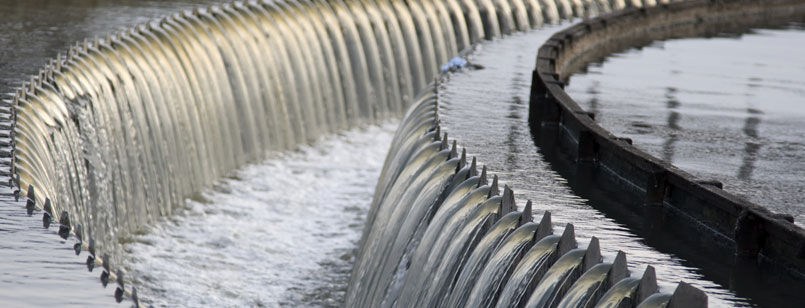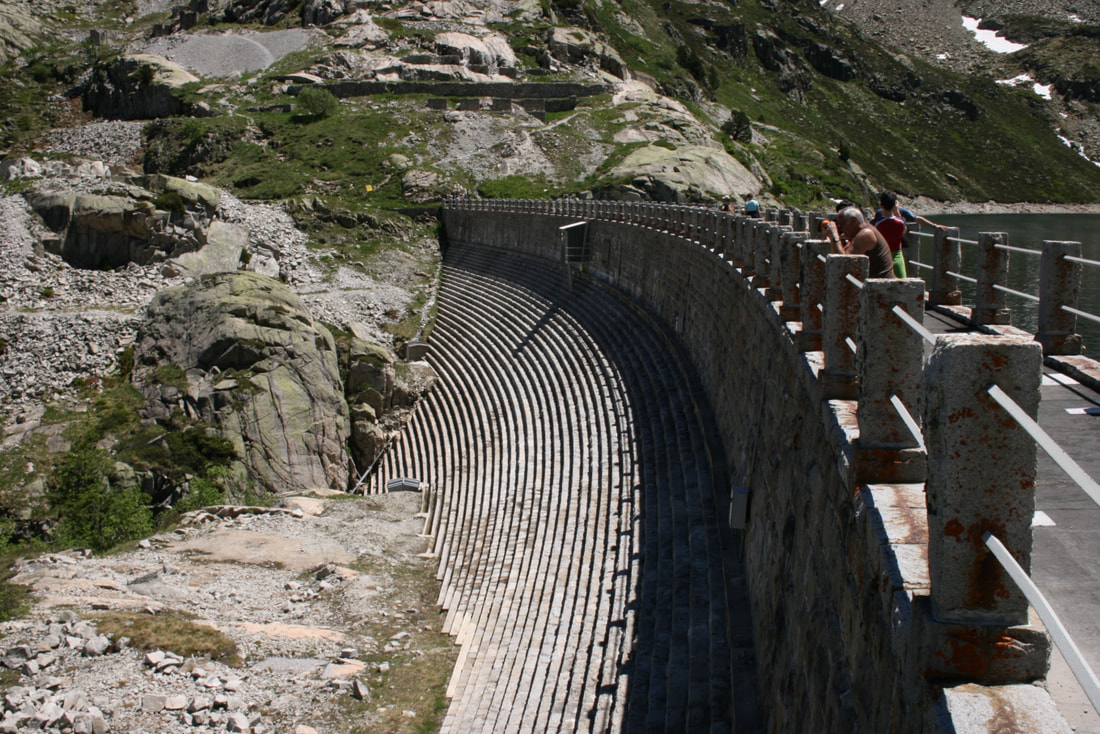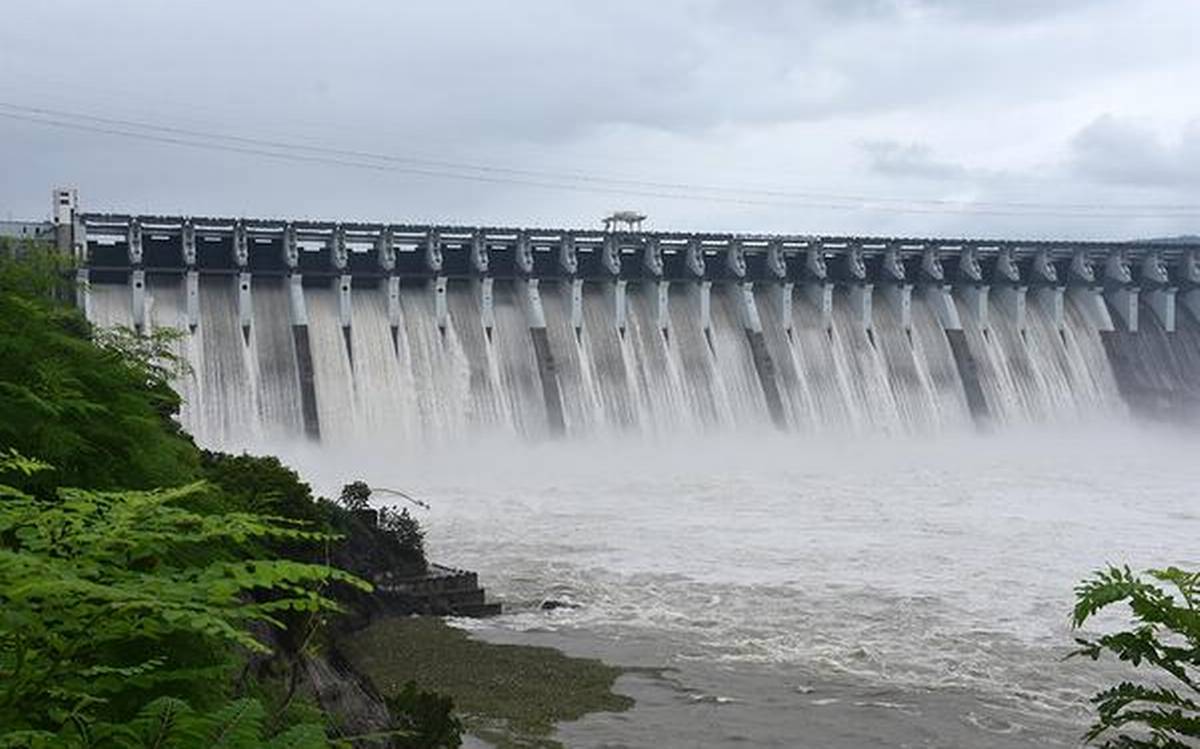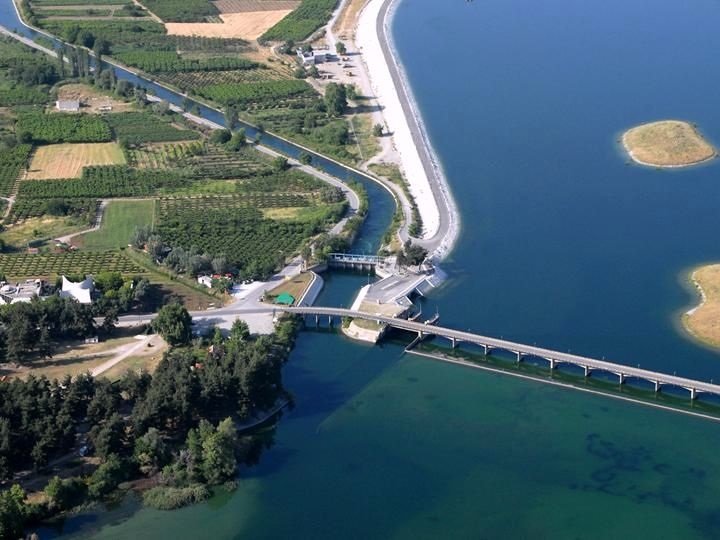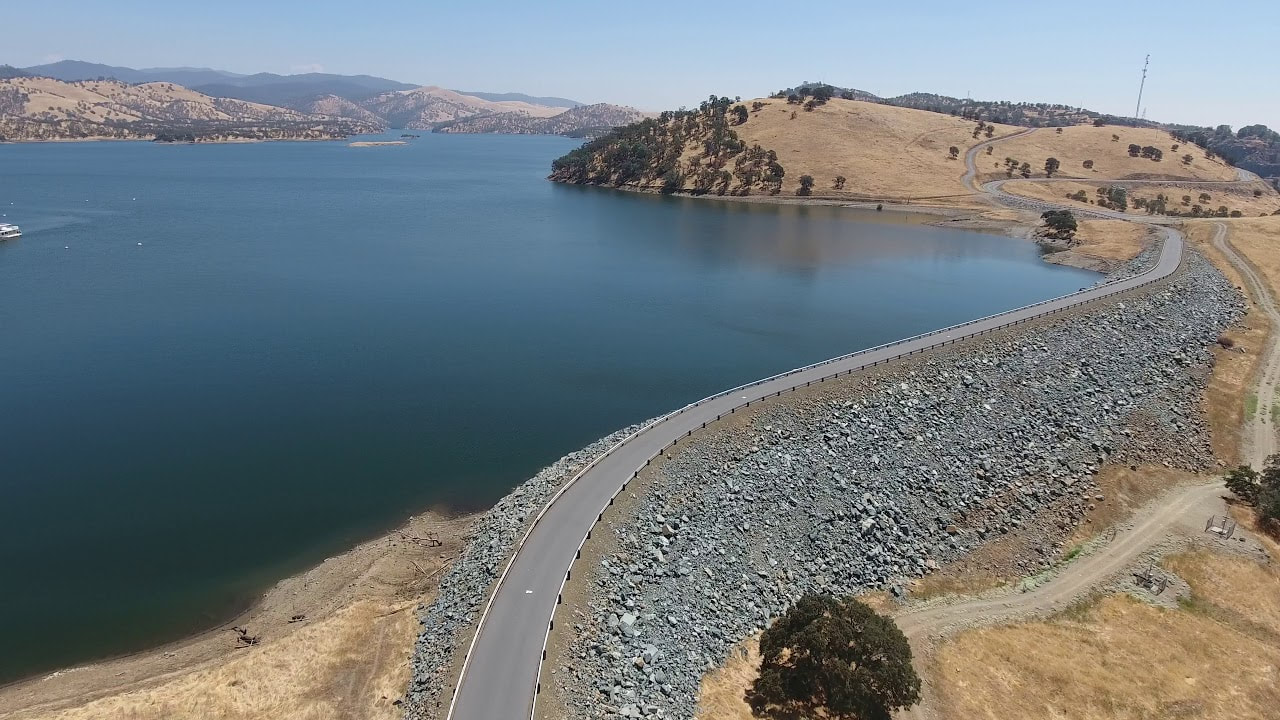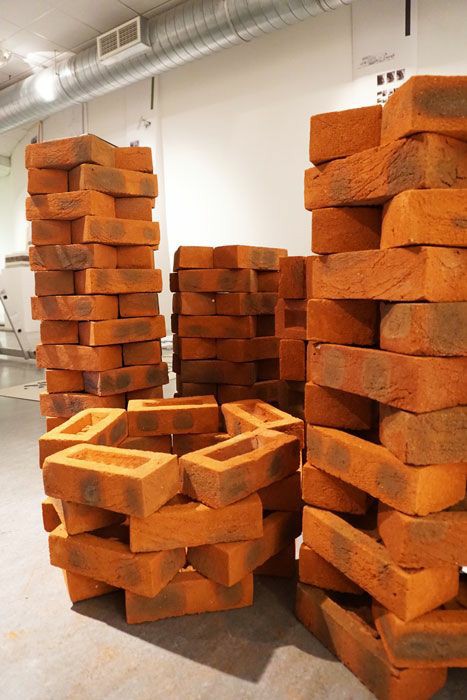types of dams
Diversion Dam
A diversion dam is a dam that diverts all or a portion of the flow of a river from its natural course.
Arch Dam |
A concrete or masonry dam, which is curved upstream so as to transmit the major part of the water load to the abutments. Double curvature arch dam. An arch dam, which is curved vertically as well as horizontally.
Buttress Dam
A dam consisting of a watertight part supported at intervals on the downstream side by a series of buttresses. A buttress dam can take many forms, such as a flat slab or a massive head buttress. Ambursen dam. A buttress dam in which the upstream part is a relatively thin flat slab usually made of reinforced concrete. Multiple arch dam. A buttress dam composed of a series of arches for the upstream face.
Coffer Dam
A temporary structure enclosing all or part of the construction area so that construction can proceed in the dry. A diversion cofferdam diverts a stream into a pipe, channel, tunnel, or other watercourse.
Embankment Dam
Any dam constructed of excavated natural materials or of industrial waste materials. Earth dam . An embankment dam in which more than 50 percent of the total volume is formed of compacted earth material generally smaller than 3-inch size. Hydraulic fill dam . An embankment dam constructed of materials, often dredged, which are conveyed and placed by suspension in flowing water. Rockfill dam. An embankment dam in which more than 50 percent of the total volume is composed of compacted or dumped cobbles, boulders, rock fragments, or quarried rock generally larger than 3-inch size.
Gravity Dam
A dam constructed of concrete and/or masonry, which relies on its weight and internal strength for stability. Hollow gravity dam. A dam constructed of concrete and/or masonry on the outside but having a hollow interior relying on its weight for stability. Crib dam. A gravity dam built up of boxes, crossed timbers, or gabions filled with earth or rock. Roller-compacted concrete dam. A concrete gravity dam constructed by the use of a dry mix concrete transported by conventional construction equipment and compacted by rolling, usually with vibratory rollers.
Hydropower Dam
A dam that uses the difference in water level between the reservoir pool elevation and the tailwater elevation to turn a turbine to generate electricity.
Industrial Waste Dam
An embankment dam, usually built in stages, to create storage for the~ disposal of waste products from an industrial process. The waste products are conveyed as fine material suspended in water to the reservoir impounded by the embankment. The embankment may be built of conventional materials but sometimes incorporates suitable waste products. Mine tailings dam. An industrial waste dam in which the waste materials come from mining operations or mineral processing.
Masonry Dam
Any dam constructed mainly of stone, brick, or concrete blocks jointed with mortar. A dam having only a masonry facing should not be referred to as a masonry dam. Rubble dam . A stone masonry dam in which the stones are unshaped or uncoursed.
Overflow Dam
A dam designed to be overtopped.
Regulating (Afterbay) Dam
A dam impounding a reservoir from which water is released to regulate the flow downstream.
Saddle Dam (or Dike)
A subsidiary dam of any type constructed across a saddle or low point on the perimeter of a reservoir.

